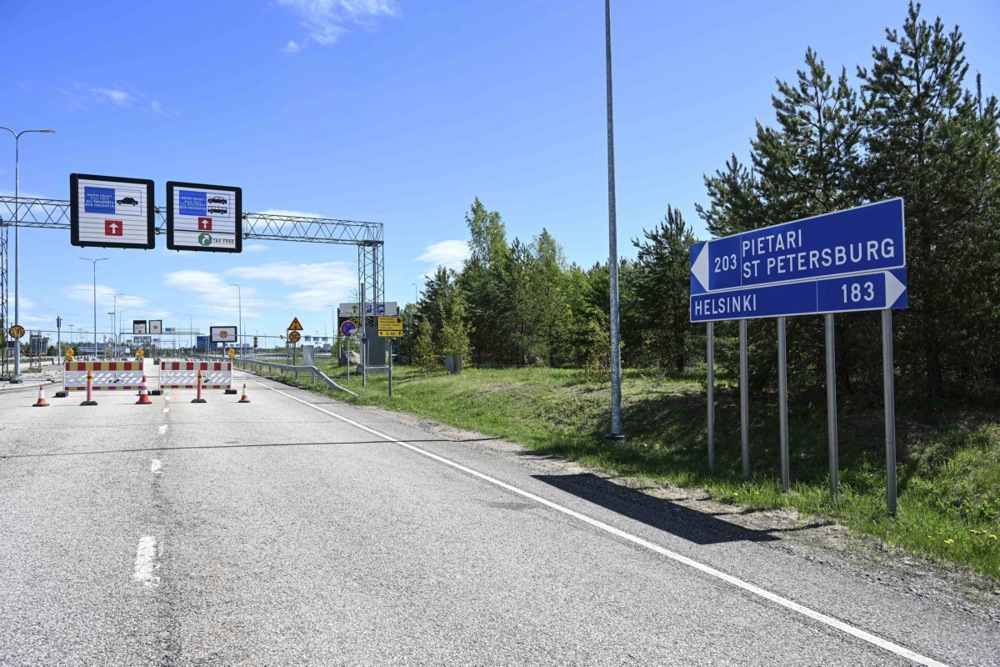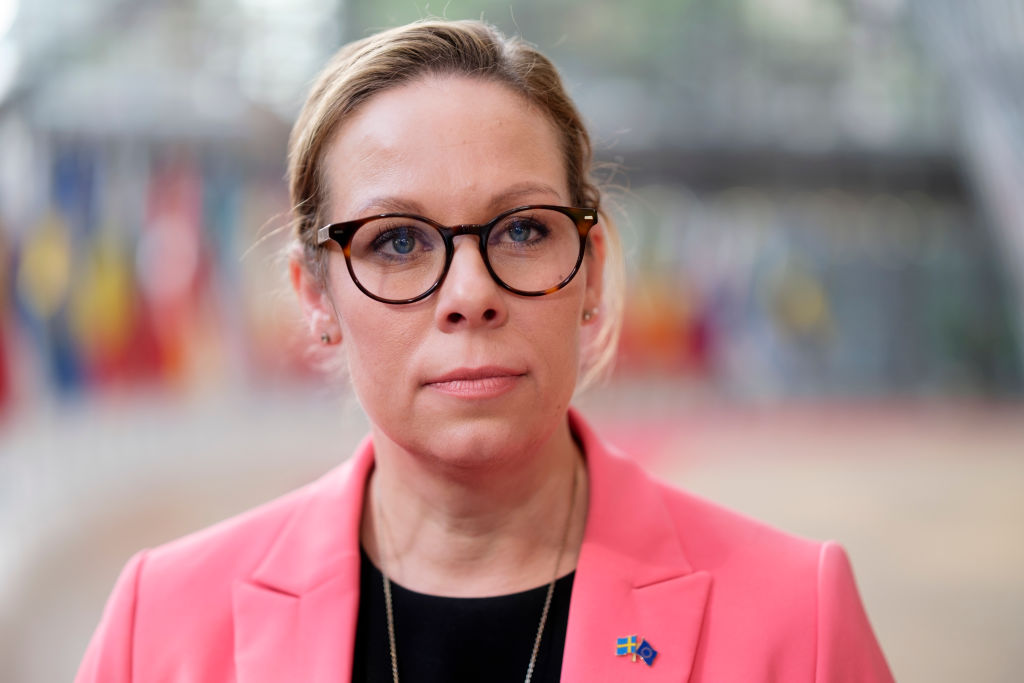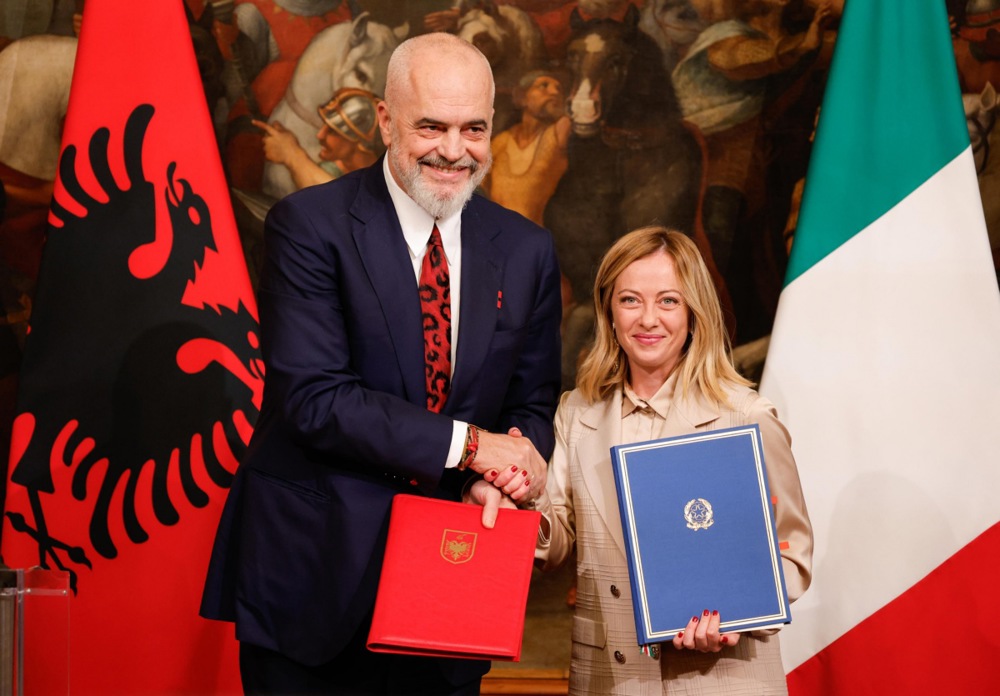The European Commission has indicated it would support future Dutch efforts to declare an “asylum crisis” and take extraordinary measures regarding an influx of immigrants.
Marjolein Faber, the Dutch government’s asylum and migration minister, declared on August 21 that the Netherlands was experiencing an asylum crisis, potentially opening the door for strong new measures to curb migration.
By declaring a crisis, observers say, The Hague could bypass existing laws and take actions that would otherwise be impossible.
“The Netherlands is in an asylum crisis,” Faber told the Dutch media. “Everything is chock-full.”
A few hours later, she backtracked somewhat, saying that there was not a crisis “on a legal basis” but that it was perceived as such “in society.”
Faber went on to say that the Dutch Government would execute migration plans agreed upon in the coalition agreement. Such arrangements, she said, should be ready by Prinsjesdag (Prince’s Day), the third Tuesday of September, when King Willem-Alexander is set to give a State of the Union speech.
Other coalition parties pointed to legal issues that they said needed to be resolved first.
Dutch Prime Minister Dick Schoof meanwhile said he believed that his country was “full” regarding migrants.
Reacting to Brussels Signal, a spokesperson for the European Commission indicated support for the planned crackdown in the Netherlands.
“The Commission is aware of the challenging situation at the reception centres in the Netherlands and we are supporting the Dutch authorities in this matter,” a spokesperson said, adding that they had been in contact with the country’s government regarding the issue.
This means that with Brussels’ support, the Netherlands could tighten border controls, withdraw the so-called ‘Distribution Law’ that allocates migrants to various parts of the country, introduce an ‘asylum decision moratorium,’ limit and reduce the right to accommodation, and deport people without valid residence permits from the Netherlands ‘as much as possible, including by force.’
The spokesman stressed to Brussels Signal that the European Commission has been supporting the Netherlands in its quest to handle migration, providing the country with financial support via the Asylum Migration and Integration Fund (AMIF) since 2014, and operational support since May 2022.
Regarding the ability of the country to declare a crisis, the commission representative said: “The main criterion is that the situation renders a Member State’s asylum, reception (including child protection services), or return system non-functional, to the point that there may be serious consequences for the functioning of the Common European Asylum System as a whole.”
Afghan asylum seekers and refugees in Germany are reportedly making unauthorised trips back home despite having claimed their lives were at risk in Afghanistan as a reason for seeking asylum. https://t.co/oMnhgXB4Ck
— Brussels Signal (@brusselssignal) August 16, 2024
In its reply, the commission seemed supportive and willing to offer help to countries that declare such a crisis — provided they follow the correct legal procedures, specifically regarding timing rules.
That was in sharp contrast to earlier comments by Commissioner for Home Affairs Ylva Johansson. She had warned the Dutch government it could not simply declare a crisis, pointing out that it had to prove it tried everything to make the existing systems work.
Replying to a question from former Dutch MP Sophie in ’t Veld in July, Johansson said the commission might intervene to block any Member State from taking certain steps regarding the issue.
She stressed that, according to European asylum guidelines, suspending asylum application processing was not feasible. Johansson stressed that the Netherlands must submit a well-substantiated request to the commission to be able to declare an asylum crisis and that Brussels would be the ultimate judge.
If the Netherlands broke European regulations and announced an asylum crisis without the commission’s consent, the body has the authority to intervene through a process known as “infringement.”
The right-wing Dutch Government anticipated possible troubles and had already said it may ask for an opt-out of European migration and asylum policy.
Such an opt-out may be in service of anti-mass migration measures outlined by a 26-page agreement between the Dutch coalition parties.
Released on May 16, the paper details how a possible future crackdown could see the repeal of the dispersal law, which forcibly located migrants throughout the country, and introduce a reversal of the burden of proof regarding the right to stay.
Migrants would meanwhile only be able to appeal a rejection of their asylum protection once, with authorities to aim for failed asylum seekers to be “expelled as much as possible, including [via] forced expulsion.”
Migrants who do end up benefitting from “protected status” under this revamped system would also no longer have priority in the allotment of social housing.
The so-called indefinite asylum permit could be abolished and the permit for temporary residence could be modified, while the country wants also introduce a dual statute system for people who either need short or long-term asylum.
Automatic family reunification could be abolished and the number of people allowed to join family members already residing in the country could be “significantly limited.”
Dick Schoof, the newly installed Prime Minister of the Netherlands, says that solving the migration problem is a key issue for the new government. https://t.co/rVnwYkpmtp
— Brussels Signal (@brusselssignal) July 4, 2024
Speaking to Brussels Signal, the commission spokesman insisted that dealing with the problems of mass migration remained a priority for Brussels.
They highlighted the continued work on the Crisis and Force Majeure Regulation, a part of the Pact on Migration and Asylum that is slated to be implemented in July 2026.
The legislation, they said, is currently being hashed out by both the commission and Member States via the Common Implementation Plan.
“The Common Implementation Plan for the Pact on Migration and Asylum sets out the key milestones for all Member States to put in place the legal and operational capabilities required to start successfully applying the new legislation by mid-2026,” the commission spokesperson told Brussels Signal.
“In addition, the EU agencies will also provide both operational and targeted support to the Member States throughout this process. The Common Implementation Plan provides a template for the National Implementation Plans to be adopted by Member States by the end of this year.”
“It groups the legal, technical, and operational work into 10 building blocks to focus and facilitate the practical implementation efforts,” the spokesperson added.





